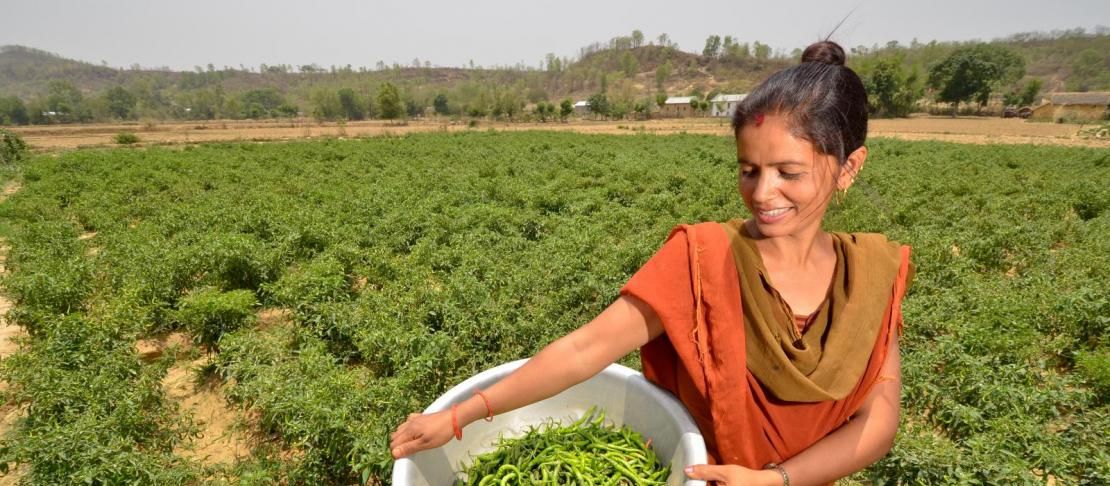Knowledge is power for smallholder farmers

by Cecilia Schubert
“Knowledge sharing is key to support agriculture”, is what Dyborn Chibonga, Chief Executive Officer, National Smallholder Farmers' Association of Malawi said at a Rio +20 side event on 13 June. Extension services, or rural advisory services, are vital knowledge sharing institutions, crucial to obtain the three dimensions of sustainable development: social, economical and environmental.
The side event “The Pillars of a new Knowledge system for Agriculture”, organized by the World Farmers’ Organisation, brought together farmers from all over the world, together with prominent speakers, discussing how to mobilise the potential of extension services and communicating what role they play in improving agricultural practices.
Extension services can help improve livelihoods, by providing vital information, technologies, knowledge and creating access to markets for farmers, via different activities such as receiving weather projections or current market prices for livestock via a smart phone or engaging in a knowledge-center that provides information about new crop varieties. Or the private sector engaging in local communities providing index-based insurance, is another example.
Dyborn Chibonga presented the five key pillars in enabling and mobilizing extension services to reach their potential: focusing on best-fit approaches; embracing pluralism; using participatory approaches; developing capacity; and ensuring long-term institutional support. These will have to be kept in mind while increasing and improving agricultural extension and advisory services. This would enable the knowledge-based infrastructure to continually adapt in agriculture.
Knowledge transfer is a two-way street
Chibonga emphasizes that farmers have information about their land and practices and want the best outcome possible regarding yield production. Recognizing and including farmer’s vital agricultural knowledge is therefore something researchers within this field must recognize, he said. Long gone are the days where information dissemination was a one-way street, where farmers were only reached by information on best practices. Instead, today's leading words are two-way communication, where information and knowledge must be curated and changed to fit local contexts. Because there are no ‘one-size fits all’ in this field, strategies of pluralism and best-fit approaches are necessary in order to enable extension services to benefit farmers. “The farmer wants to be involved in the development of the content” Chibonga stressed, and seeing as farmers have an interest in ensuring that yields are as high as possible, services must also be demand driven and flexible.
Projects promoting and delivering extension services must also move from being a few-year initiative, to long-term, sustainable institutional implementation in the area. Organisations also must realize that impact won’t be achieved after initial information dispersion, instead all sectors in the community, public, private, non-governmental and farmers’ organisations all play a key role in ensuring that rural advisory services serve agriculture and farmers as intended.
The need to share basic information is sometimes forgotten
Speaker Mrs. Bridgit Muasa, from the Department of Veterinary Service in Kenya, emphasizes the need to return to basic information before sharing highly technological advice. “Basic information, such as ensuring that poultry farmers know about the importance of feeding newborn chickens within the first hours, can be crucial” she said. “It is important not to forget that people might not have basic information and knowledge when developing extension services and sharing information”. Going back to basics would then mean that people have a better opportunity to use more advanced knowledge at a later stage.
Mobile phones can be used for more than phone calls; they can help transform the way farmers work. Farmer Zeinab Aloumani from Jordan pointed to the need for training female farmers to use available mobile services, so they can benefit from information and advice related to agriculture, which might support them in their activities.
Connecting the dots from field to plate the step forward
In many countries, the young generation tends to be disconnected from agriculture; few young people engage in farming activities, preferring jobs in cities. A disconnect also exists between consumers and food producers: many people don’t know how food gets from the field to their plate, said Matt Linnegar, a farmer discussant from Australia. Communities must help bridge this gap and work to ensure that consumers trust the producer and realize the amount of energy and input that is involved in producing food.
The CGIAR Research Program on Climate Change, Agriculture and Food Security (CCAFS) is covering the Rio+20 Conference live between 12 - 22 June. Read the latest stories related to agriculture and food security from the conference. To get the latest updates follow both CCAFS on Facebook and Twitter and Agriculture Day Facebook and Twitter. Join the conversation about agriculture and food security during Rio+20 using #Rio4ag on Twitter.
Cecliia Schubert is a communications assistant at the CGIAR Research Program on Climate Change, Agriculture and Food Security (CCAFS).